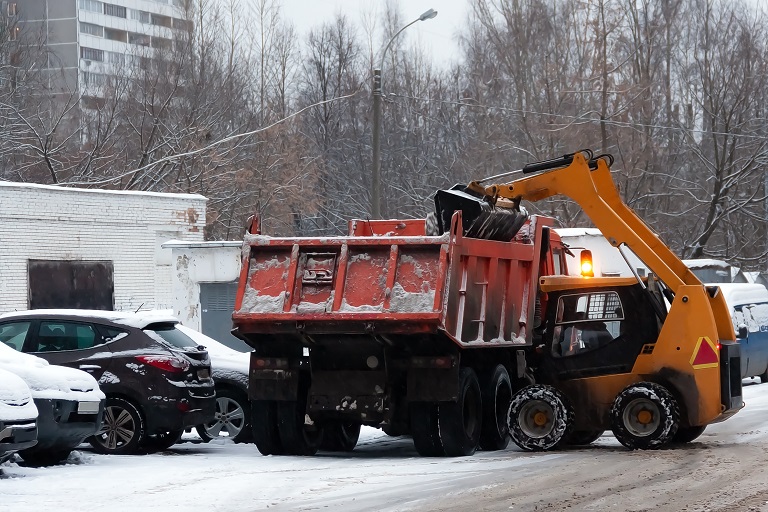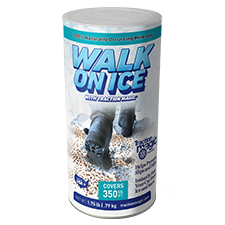How Ice Melt Damages Your Commercial Vehicle

Winter delivers lovely scenery and pleasant nights by the fire, but also snow and ice, which can damage your commercial vehicles. Winter is equal parts hot chocolate, snowmen, and corrosion damage in the mind of an auto mechanic.
Rock salt, ice, and melting snow are typical on our roads during the winter. They take their toll on your vehicle. However, with a few preventive maintenance actions and careful storage planning, winter damage to your vehicle can be avoided.

It is an easy task to know how to melt ice without salt. But you need to be aware of salt-free ice melts available in the market. Let us understand more about the damages of chemical-based ice melt on your commercial vehicle.
How salt ice melts damages your commercial vehicle
When salt comes into contact with water, it corrodes the iron and steel in your commercial vehicle. The salt crust that forms on your commercial vehicle over the winter months is waiting to combine with water and eat away the metal
The presence of loose chloride ions from deicing salts in water speeds up the electrochemical process that causes rust and corrosion between iron in metal and oxygen in the air. This danger is greatest on bare metal, such as the underside of your vehicle, where road salt and other corrosive substances are slowly eroding vital parts.
Chemicals that are wiped off your vehicle’s surface tend to become embedded in shock absorbers, settle in your wheel wells, infiltrate door panels, and rest in secret cavities and crevices that can only be seen by raising your automobile.
Worst yet, these chemicals are hygroscopic, which means they collect and hold moisture. They operate as moisture magnets when they stow away in your undercarriage, slowly corroding any metal surfaces. Calcium chloride eats away at brake lines and suspension components by wicking into any exposed wiring.
Magnesium chloride rapidly dissolves in water at low humidity levels. The magnesium chloride crust on the vehicle takes moisture from the air to generate the corrosive water/salt mixture.
Imagine the damage salt can cause to the roadway if your vehicle can corrode just from driving on salted roads. When salt is put on roads, bridges, sidewalks, parking garages, and sidewalks, the materials used to construct these structures can begin to break down.
The salt-based ice melts are bad news for your vehicle as well as concrete. How to melt ice on concrete then? A green, salt-free ice melt with non-corrosive ingredients will give you protection from snow and toxic chemicals.
100% salt & chloride-free, fast acting Ice Management Solution
Conclusion
The ice-melting salt will corrode and eat away at your vehicle’s paint and undercarriage. This salt is required to keep our roads free of ice and snow, but it is also one of the most common causes of wintertime damage.
Don’t just wipe the salt off your commercial vehicle. To avoid scratches and blemishes, wash them off. Salt corrodes metal quickly, so wash underneath the vehicle frequently as well. So, how to melt ice without salt? The best way to avoid ice melt damage is by using a safe, salt-free ice melt. It is free from corrosive chemicals and will neither damage your vehicle nor premises.
Try Also Our Other Winter Safety Products:
Safe Paw
The Original and #1 Selling Pet and Child Safe Ice Melt for over 20 years. Guaranteed environmentally safe – will not harm waterways and sensitive wetlands. Safe Paw can change how winter affects our planet.

Walk On Ice
Prevent slips at home, work or on the go, The handy disposable canister can be taken everywhere, with the same 100% naturally occurring minerals that provide instant traction on ice or snow. Use it on sidewalks, steps, or as instant traction agent for your car.


